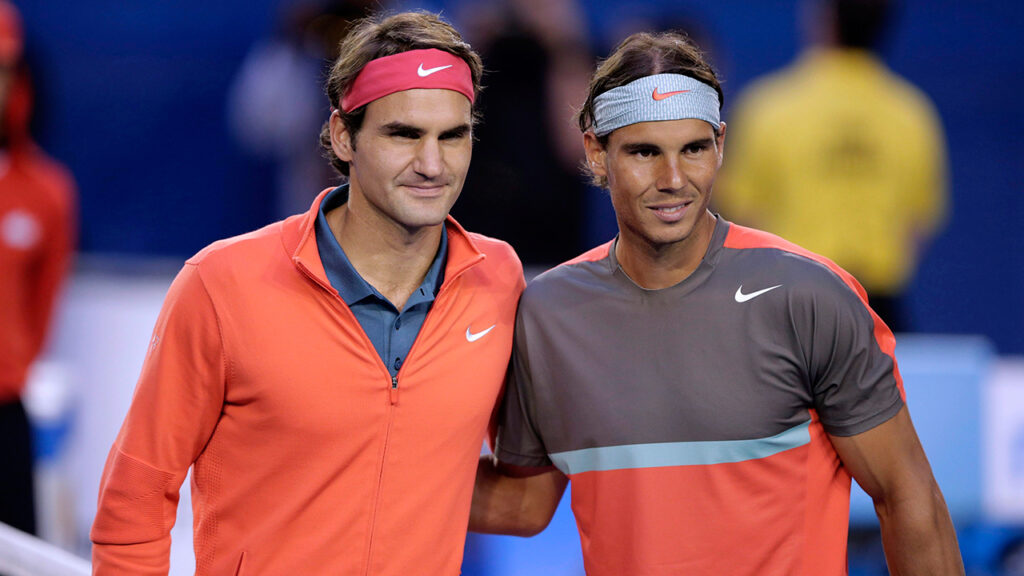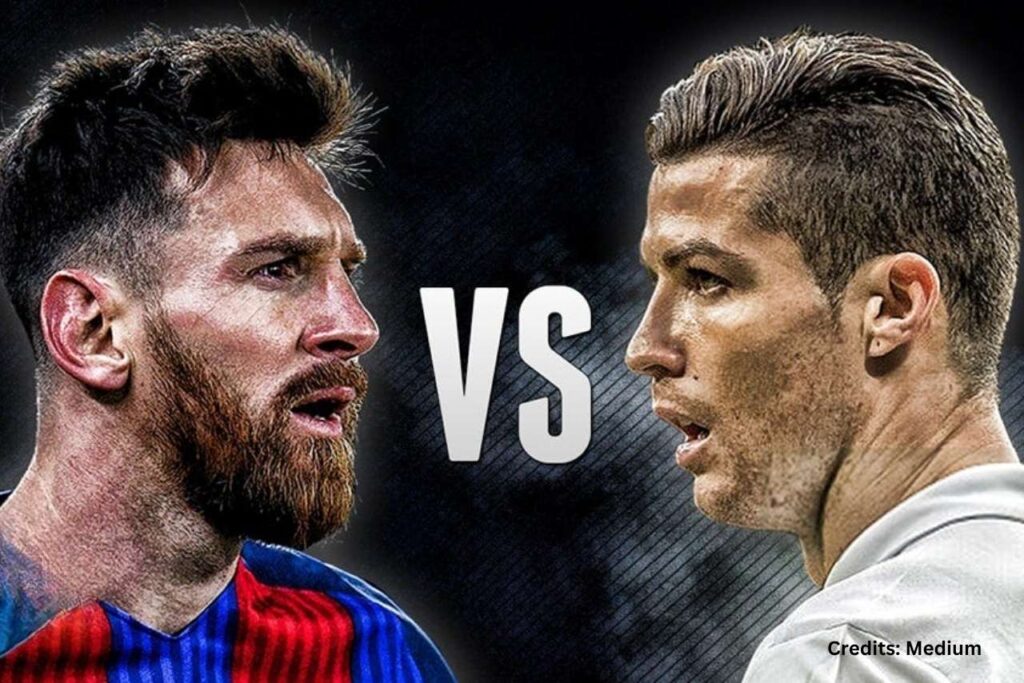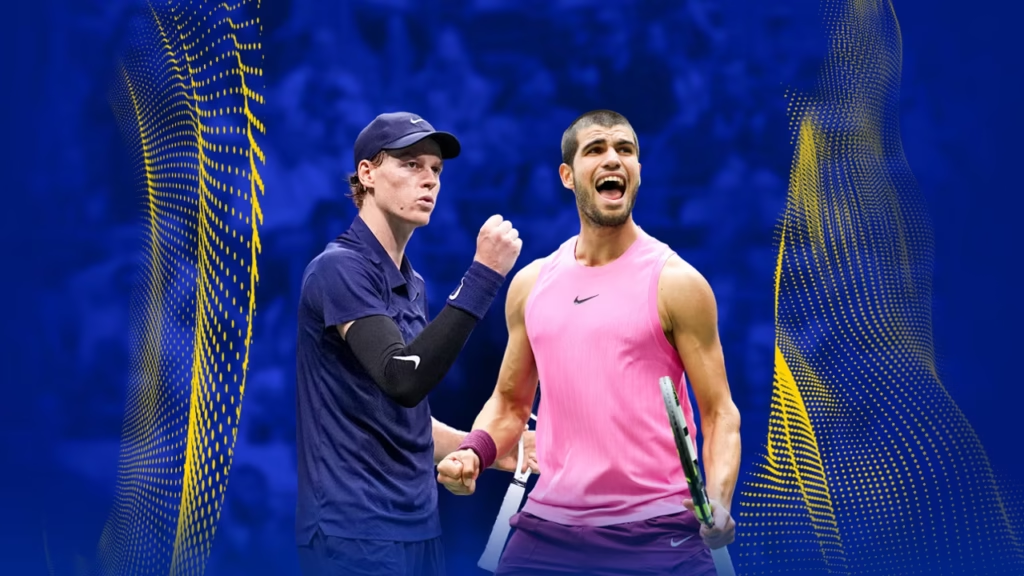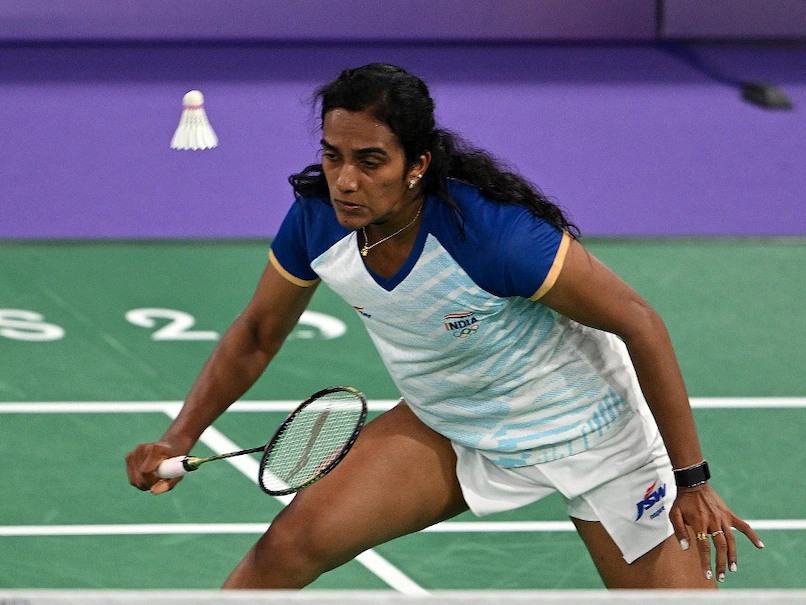Who’s your rival? It could be the athlete across the net, the teammate competing for the same spot, or even your own past performance. A rival can mean different things to different people, but what truly matters is how you perceive them and how you channel that energy to elevate your game.
Rivals are the ones who make you uncomfortable, who expose your weaknesses, and who force you to rise higher than you ever thought possible.
Look at some of the greatest rivalries in sport: Nadal vs Djokovic, Federer vs Nadal, Messi vs Ronaldo, and many more. These aren’t just matchups; they’re battles that elevate performance to another level.
Rivalries sharpen focus, make you even hungrier to give your best, and build resilience. Without them, athletes can get too comfortable, too settled, too “good enough.”
The truth is, the consequence of rivalry is growth. A strong rival will make life tough, but in that toughness lies progress. They push you out of your comfort zone, test your mental toughness, and ultimately take you to a completely different place in your game. Rivalries are not threats; they’re opportunities disguised as competition.
In the following article brought to you by MyMentalCoach, we’ll delve deeper into how such rivalries serve as catalysts for peak performance, drawing insights from psychology and real-world examples.
The Power of Rivalry in Sports
In the world of sports, rivalries are more than just intense matches—they’re the driving force behind an athlete’s relentless pursuit of excellence. Take the Alcaraz–Sinner rivalry, for instance. This dynamic clash between Carlos Alcaraz and Jannik Sinner has become a defining feature of modern tennis, captivating fans and pushing both players to new heights.
Their encounters, often dubbed “Sincaraz” by fans and media, have been nothing short of spectacular. From the grueling five-set battles at the French Open to their high-stakes showdowns at Wimbledon and the US Open, each match adds a new chapter to their evolving saga. These contests are more than just games; they’re psychological duels that test the limits of endurance, strategy, and mental fortitude.
But why do these rivalries matter? According to sports psychologists at MyMentalCoach, the presence of a formidable opponent can significantly enhance an athlete’s performance. The drive to outperform a rival often leads to increased focus, innovation, and resilience. In fact, studies have shown that athletes facing strong rivals tend to experience heightened motivation and improved outcomes, even under pressure.
For Alcaraz and Sinner, each match is a learning experience, a chance to adapt and evolve. Their rivalry has not only elevated their individual games but has also set a new benchmark for tennis, blending athleticism with psychological depth.

Legendary Rivalries That Shaped Sports
Rivalries have always been at the heart of sports, pushing athletes to heights they might never reach alone. Some of the most iconic rivalries have not only defined careers but also transformed entire sports.
Take Roger Federer vs. Rafael Nadal, for example. These two tennis legends battled across courts for over a decade, each match a masterclass in skill, strategy, and mental toughness. Federer’s graceful, aggressive playstyle contrasted perfectly with Nadal’s relentless, high-intensity game, making every encounter unpredictable and thrilling. Their rivalry elevated men’s tennis to new global attention, inspiring younger players to push their limits and fans to engage deeply with the sport. Every time they faced off, it wasn’t just a match—it was a lesson in resilience, focus, and the psychology of competition.
Check out this video on Federer and Nadal’s rivalry to get a better understanding.
Similarly, in football, the Lionel Messi vs. Cristiano Ronaldo rivalry has dominated the sport for over 15 years. Messi’s artistic, almost poetic approach to the game clashes beautifully with Ronaldo’s power, precision, and unmatched athleticism. This rivalry has raised the bar for individual performance, driving both players to improve constantly and setting records that seemed unthinkable. Fans worldwide followed their journeys not just for goals scored but for the mental toughness and consistency displayed by these athletes under intense pressure.
Even outside of individual sports, rivalries in team sports—like the Chicago Bulls vs. Detroit Pistons in the NBA or India vs. Pakistan in cricket—have defined eras and pushed entire teams to innovate, strategize, and perform at peak levels. These rivalries create narratives that captivate audiences while fostering a culture of continuous improvement among athletes.
In essence, legendary rivalries like Federer vs. Nadal and Messi vs. Ronaldo show us that competition, when healthy and focused, is not just about winning—it’s about growth, evolution, and inspiring excellence across the sport. For athletes, understanding this psychological edge is crucial, and guidance with specific programs from a sports psychologist at MyMentalCoach can help harness rivalry as a tool for peak performance.
How You Should Look at a Rival in Your Sport (Dos and Don’ts)
Having a rival in your sport can feel intense — sometimes motivating, sometimes frustrating. But the way you choose to see your rival can make all the difference between getting stuck in comparison and actually growing into your best version. The truth is, rivalries can be healthy if you approach them with the right mindset.
Let’s start with the Dos — the ways to use rivalry to your advantage:
- Do see your rival as a mirror, not a threat. Their performance reflects where the sport is headed and where you can improve.
- Do learn from them. Watch what they do well — their routines, mindset, or body language under pressure. You don’t have to copy, but you can adapt what works.
- Do let them push you. Use that extra fire before a match or during training to stretch your limits. Rivalries are great motivators when your focus is on your own progress.
Now, the Don’ts — the traps athletes often fall into:
- Don’t let jealousy take over. It’s easy to compare stats or achievements, but that energy drains focus. Redirect it toward working smarter.
- Don’t define yourself only through your rival. Rivalries come and go; your growth lasts longer. Compete with them, not against who they are.
- Don’t underestimate emotional control. Anger, ego, or frustration can ruin performance. Rivalries are won by calm minds, not loud emotions.
The key is to treat your rival as an unintentional coach — someone who unknowingly helps you discover what’s still possible within you. When you adopt that mindset, rivalry becomes less about beating someone and more about unlocking your peak performance.
If you ever find rivalry becoming mentally draining or confusing, working with a sports psychologist at MyMentalCoach can help you reframe it in a way that strengthens your focus, confidence, and self-belief. At MyMentalCoach, we help athletes build the mental skills to handle competition positively and consistently perform at their best — even when emotions run high.
If you want to know more about why rivalries in sports are important, you should check out this research article titled, “‘Behind the Blue’: The psychology behind sports rivalries, why we love to loathe the other team”.

Embracing Rivalry for Growth and Excellence
Rivalries in sports are far more than a contest of skill—they are powerful tools for growth. Healthy competition pushes athletes to sharpen their focus, elevate their techniques, and build mental resilience.
Whether it’s the Alcaraz–Sinner rivalry, Federer vs. Nadal, or Messi vs. Ronaldo, these competitive matchups show that facing a worthy opponent can bring out the very best in an athlete.
So, how can athletes foster rivalries to reach their peak performance? First, it starts with self-awareness—identifying competitors who challenge you and motivate you to improve.
Then, approach each rivalry as a learning opportunity, studying your opponent’s strengths and weaknesses while refining your own skills.
Maintaining a growth mindset, embracing constructive pressure, and using every match as a stepping stone rather than a threat are key strategies.
Importantly, a sports psychologist can guide athletes to harness rivalry effectively, turning competition into a driver for consistent performance gains. At MyMentalCoach, we specialize in helping athletes channel their rivalries, overcome mental barriers, and maximize their potential.
Take the first step toward peak performance today—call +91 9823791323 to schedule your 15-minute free consultation and learn how to turn rivalry into your ultimate competitive advantage.


